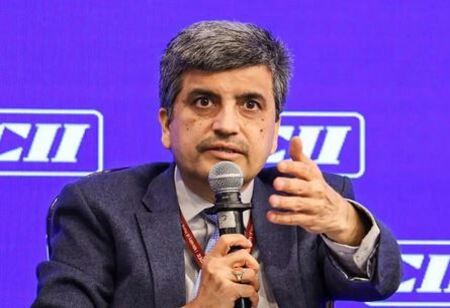
Former DEA Secy Ajay Seth Named as IRDAI Chairman for 3-Year Tenure


After nearly a month since his appointment, Ajay Seth officially took charge as the chairman of the Insurance Regulatory and Development Authority of India (Irdai) early this week.
In a notification, the insurance regulator announced, “Ajay Seth has taken charge as chairman of the Insurance Regulatory and Development Authority of India, effective September 1, 2025.”
The central government appointed Seth, who previously served as the secretary of the Department of Economic Affairs (DEA), on July 24, 2025, following the completion of Debasish Panda's three-year term in March 2025. Seth is an IAS officer from the Karnataka cadre, belonging to the 1987 batch.
The Appointments Committee of the Cabinet, which is led by Prime Minister Narendra Modi, approved Seth’s appointment for a term of three years, or until he reaches the age of 65, or until further notice, whichever comes first.
Also Read: Steps to Enhance Your Organization's Cyber Resilience
Experts note that the insurance sector is facing a slowdown as it navigates through regulatory changes, despite its ambitious goal of achieving "insurance for all by 2047,” a rallying cry put forth by former chairman Panda.
As the new leader of the insurance regulator, Seth will take on several unfinished initiatives from the previous administration, which include the implementation of the risk-based capital framework, risk-based supervision framework, and International Financial Reporting Standards (IFRS).
Additionally, the regulator has yet to roll out the ambitious project to create an Amazon-like platform—Bima Sugam—for buying, selling, and servicing insurance.
Also Read: WAVES 2025: Burgeoning India's Orange Economy
The industry is also anticipating the Insurance Amendment Bill, 2025, which suggests major changes such as permitting 100 percent foreign direct investment (FDI) in the insurance sector. If passed, this would enable foreign insurers to increase their ownership percentages in existing joint ventures and allow them to enter the Indian insurance market without a local partner.